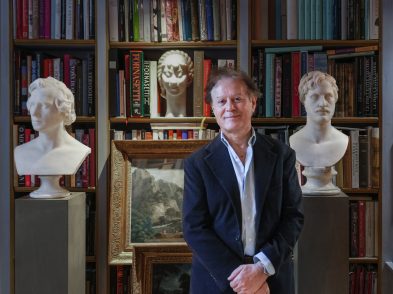If you ask Francesca why she became a tour guide, she’ll tell you about having to inventarsi una professione after her university degree brought her nothing but harrying waitressing jobs during high season.
In the end, guiding suits her. Francesca’s ability to look a complaining client in the eye while watching the rest of the world load onto a tour bus is Italy’s most subtle form of multi-tasking. Minutes before the bus groans and departs, she knows who will be pick-pocketed and who will be picked up before leg two of the tour is over.
If you ask her why she’s stayed a tour guide for going on seven years, my friend will smile and present you with a question of her own: ‘Do you want the real reason? I love the way foreigners say my name. Fran-chess-ca. It makes me sound like a countess.’
To me this is as good a reason as any. One should never underestimate a well-placed syllable. But speaking of countesses, these days, my friend has started to pour her talents into luxury tourism, making a name for herself by matching enthused wealthy buyers with grumbling Florentine artisans, so the former can take home gilded frames and fine leather sandals made to fit the soles of their feet. On some level, these match-ups make for a perfect fit. One has pockets bursting with purchasing power and the other has an account with ancestral pride: the two are able to meet as equals on the streets of San Frediano.
‘Sometimes fanno storie,’ Francesca explained recently. ‘But most times they are good.’
Not entirely sure what she meant by this, I asked, ‘You don’t like it when they tell you stories?’ Perhaps many visitors were shamelessly boring when describing Sardegna’s glistening sea and the Padana plain’s wonderful cheese and mind-boggling mosquitoes.
‘No,’ she corrected. ‘They don’t tell stories. Fanno storie. Basically, I mean they complain.’
Well now, that’s fascinating, isn’t it? What Italians call ‘making stories,’ English speakers refer to as ‘making a fuss.’ Francesca is convinced that it’s very nearly the same thing. For what story, she says, was ever born from absolute contentedness? Happiness makes for good figs and ham, but stories-the kind that engender great heroes and genius masters-don’t get off the ground without conflict, divergence, suffering and misunderstanding.
I thought about her theory for a moment. ‘Is this why Italian daily life sometimes feels so rife with conflict? Last week I had a fight with the bus driver because he said he didn’t know where his bus was going. “Is this the 1A?” had started out as a pretty simple question, I’d thought.’
‘That’s not conflict,’ she smiled. ‘That’s pure and utter folly.’
‘Yes, but it’s a true story. And brilliance is never far from folly, they say. Maybe it’s the availability of situations like these that spurred Italy to created so many heroes and masters.’
‘Only masters,’ my friend corrected. ‘No heroes.’
Her tone was not seeped in cynicism. It was pressed and dry, though, like promises are when you know they will come to nothing. ‘In this,’ Francesca continued, ‘Italy is the opposite of the United States.’
I smiled. ‘I won’t tell anyone if you don’t.’
‘Maybe if you write about it, someone will disagree and make a fuss.’
‘Oppure, fare storie,’ I laughed, or they will complain.
‘The truth is, Linda, tutti fanno storie. The artisans complain because, in their minds, commissioners make far too specific requests. They’ll justify this mentality by telling you that a crafted piece can only bend as the body can. In the end, clients can talk until they’re viola about wanting a sky-blue frame to match their couch cushions, and the artisan will end up painting it purple instead. Why? Because purple seemed like a better idea and paints are not solely mixed by hand. An artisan’s convictions are poured right in with the thinner. Honestly, the hardest part of my job is getting people to listen to each other. No one ever does. And this is why life is never senza fare storie.’
‘Maybe,’ I nodded, ‘but before today, I’ve never thought of “fuss” being a good thing.’
She grinned. ‘And I’ve never thought of the real reason why the Renaissance Man was born in Florence.’
I raised my eyebrows. ‘What do you mean?’
Francesca checked her watch, which she keeps 10 minutes ahead. Then she looked back at me, deciding she still had time. ‘They knew it as far back as the fifteenth century. It’s too hard to get people to do what you want. If you expect your whims to come to fruition, you just have to learn to do things yourself. Because no one listened, it was easier to become masters at everything. Hence, the Renaissance Man.’
Right. The Renaissance Man. And one modern woman could very likely have knocked his socks off.








